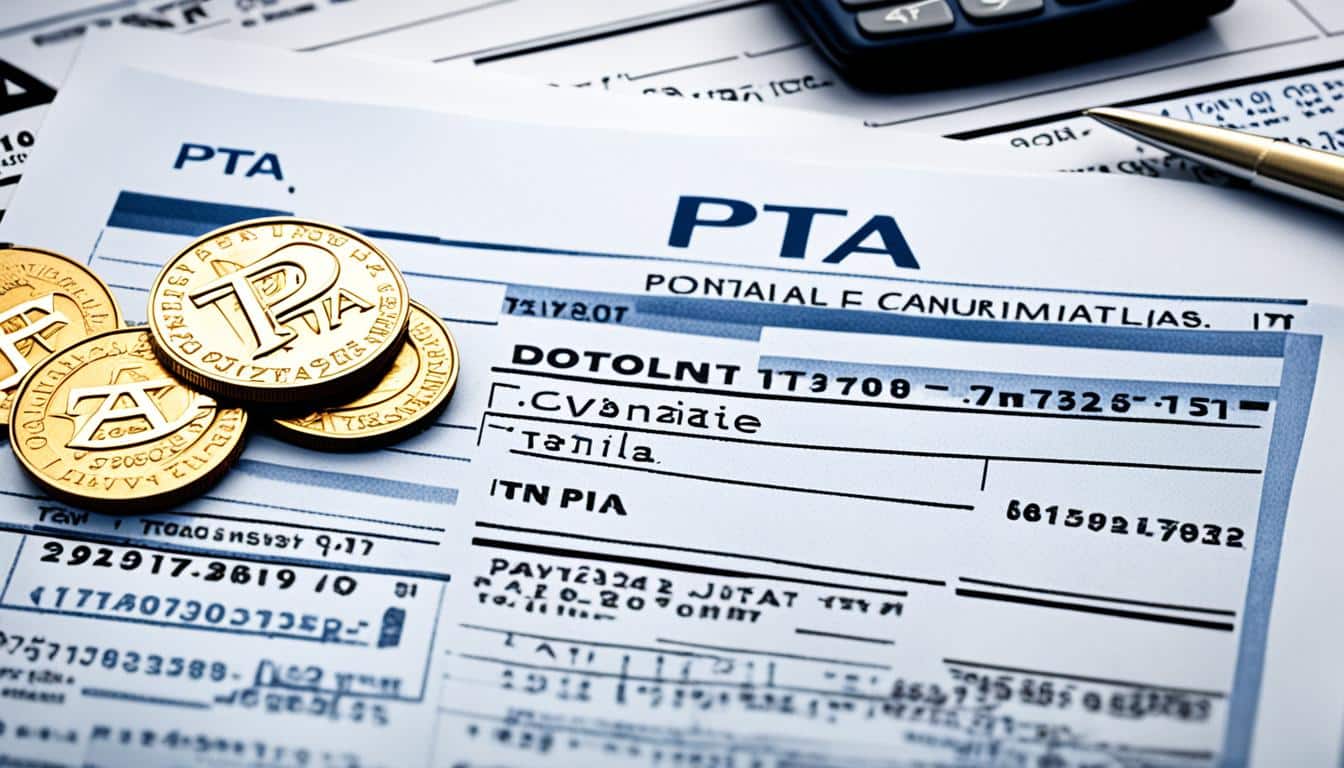Let me tell you a story. Meet Sarah, a dedicated parent and active member of her child’s school PTA. Sarah believes in the power of education and wants to support her child’s school in any way she can. So, when the PTA organized a fundraising event to raise funds for new classroom supplies, Sarah eagerly contributed. She made a generous donation to help her child’s school and felt proud of her contribution.
However, as tax season approached, Sarah began to wonder if her PTA donation was tax-deductible. She had heard conflicting information from her friends, and she wanted to make sure she was taking advantage of any potential tax benefits.
Curious and determined to get answers, Sarah delved into the world of tax deductions for PTA donations. She read up on the Internal Revenue Code 501(c)(3) and the rules and regulations surrounding charitable contributions. She discovered that while PTAs qualify as charitable organizations, not all donations are tax-deductible.
As Sarah navigated through the complex maze of tax implications, she learned that a key factor in determining if a PTA donation is tax-deductible is whether she received anything of value in return for her contribution. Sarah realized that if she attended a fundraising event and received a gift or won an auction item in exchange for her donation, the value of that item would not be tax-deductible.
Armed with this knowledge, Sarah realized the importance of understanding the rules and regulations surrounding PTA donations. She wanted to ensure that her contribution was fully eligible for any potential tax benefits.
Key Takeaways:
- PTAs are considered charitable organizations, but not all donations are tax-deductible.
- Contributions made to PTAs where nothing of value is received in return are tax-deductible.
- Businesses also have tax implications when making donations to PTAs.
- Volunteers can deduct unreimbursed expenses related to their PTA work.
- Proper recordkeeping is crucial for substantiating tax-deductible donations.
How to Determine Tax-Deductible Gifts
When it comes to determining tax-deductible gifts, there are a few important factors to consider. Under the IRS guidelines, any contribution you make to a PTA for which you receive nothing of value in return is tax-deductible. This means that if you attend a PTA fundraiser and win an auction for a gift card but pay more than its value, you can only deduct the difference as a gift. However, if you simply donate the amount of the gift card to the fundraising drive without receiving anything in return, the full amount is tax-deductible.
It’s essential to understand the difference between gifts of value and non-tax-deductible donations to ensure you claim the appropriate deduction. Gifts of value include items or services received in exchange for your donation, such as event tickets, merchandise, or other perks. Non-tax-deductible donations are those that provide you with something of value in return for your contribution.
By carefully evaluating the nature of your gift and considering whether you receive anything of value in return, you can determine the tax-deductibility of your donations. This not only helps you maximize your tax savings but also ensures compliance with IRS regulations.
| Donation Type | Tax-Deductible |
|---|---|
| Gift Card Won at Auction | Only the difference between the amount paid and the actual value |
| Donation of Gift Card | The full amount |
As the table above illustrates, understanding the distinction between gifts of value and non-tax-deductible donations is crucial for accurately determining the tax-deductibility of your gifts. By adhering to these guidelines, you can ensure you claim the appropriate deductions and optimize your tax benefits.
Tax Implications for Businesses
When it comes to tax-deductible donations for businesses, there are a few important considerations to keep in mind. The same rules that apply to individuals also apply to businesses. If your business receives something in return for a donation, it is not tax-deductible. However, if you make in-kind donations or donate items that can be used within your own business, you can deduct the full amount.
It’s crucial to understand the guidelines set by the IRS for tax-deductible business contributions. Donations made to PTAs that include advertising acknowledgements for businesses are not considered tax-deductible. However, donations that include only the name, address, and phone number of the business are fully deductible. So, if you’re considering making a donation to a PTA, be mindful of the nature of the acknowledgment you’ll receive and the tax implications associated with it.
Examples of Tax-Deductible Business Donations
Here are a few examples of tax-deductible business donations:
- A gift card donation to a PTA fundraiser, as long as the gift card is not for your own business.
- Donating company products or services that can be used by the PTA or its members.
By making tax-deductible donations, businesses can not only support their local PTAs but also enjoy the financial benefits that come with it. Ensure that your business contributions align with the IRS guidelines to make the most of deductions.
| Business Donation Type | Tax Deductibility |
|---|---|
| Gift card donation (not for own business) | Full amount tax-deductible |
| In-kind donation (company products or services) | Full amount tax-deductible |
| Donation with advertising acknowledgements | Not tax-deductible |
| Donation with name, address, and phone number acknowledgment | Full amount tax-deductible |

Deducting Volunteer Expenses
Are you a dedicated PTA volunteer? Did you know that you may be eligible to deduct your unreimbursed volunteer expenses? That’s right! The hard work you put into supporting your PTA can be rewarded with potential tax benefits.
As a PTA volunteer, your commitment goes beyond just giving your time. You may incur expenses for meals, travel, phone calls, and more while carrying out your volunteer duties. The good news is that these unreimbursed expenses can be considered as charitable contributions and may be eligible for deduction.
Let’s say you spent $500 on travel expenses for PTA-related activities, but you were only reimbursed $100. In this case, you can deduct the remaining $400 as a charitable contribution. It’s important to keep records of your expenses and ensure they meet the criteria set by the IRS for deducting volunteer expenses.
By deducting your volunteer expenses, you not only financially benefit from your contributions to the PTA but also enable yourself to continue supporting the organization in a meaningful way. So, don’t forget to take advantage of the potential tax deductions available to you as a dedicated PTA volunteer!
| Expenses | Amount |
|---|---|
| Travel | $500 |
| Reimbursement | -$100 |
| Deductible Contribution | $400 |
Understanding the Recordkeeping Requirements
When it comes to tax-deductible donations, accurate recordkeeping is crucial for individuals and businesses. The IRS has specific requirements to ensure you can substantiate your charitable contributions and comply with regulations.
Cash contributions, regardless of the amount, should be supported by records like credit card statements or canceled checks. For those who make payroll deductions, it’s essential to keep backup documentation such as pay stubs or pledge cards.
For cash contributions of $250 or more, it’s necessary to obtain a contemporaneous written acknowledgment from the organization. This documentation is vital in demonstrating your tax-deductible donations.
If you’re making non-cash contributions, remember to retain proper documentation, including receipts from the organization and records indicating the fair market value of the property. These records will help you substantiate the value of your donation should it be questioned.
By maintaining accurate records and following the IRS guidelines, you can ensure that your tax-deductible donations are properly documented. This not only helps you claim the appropriate deduction but also provides peace of mind in complying with tax regulations.








